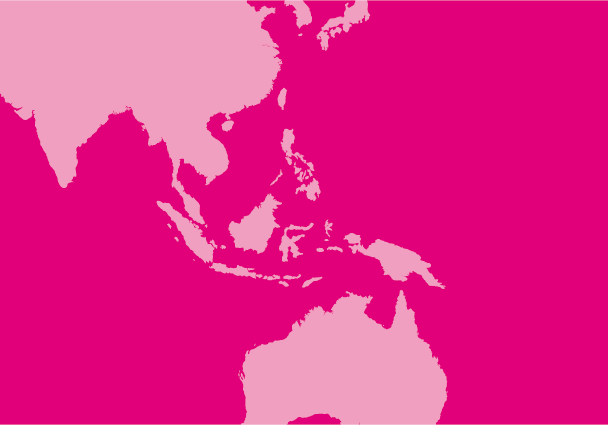
Jul 9, 2013 | News
The ICJ today called for the immediate release of Le Quoc Quan, after the People’s Court of Hanoi announced on 8 July 2013 the postponement of his trial, without setting any new dates for the case. The reason given for the hastily informed adjournment was that the judge had suddenly taken ill.
The ICJ considers that Le Quoc Quan’s continued detention is in violation of Vietnam’s penal law and the State’s international legal obligations.
Le Quoc Quan, a lawyer and human rights defender, was arrested on 27 December 2012 and charged for tax evasion under article 161 of Vietnam’s 1999 Penal Code.
The postponement of the trial appears to signal that Le Quoc Quan will continue to remain in jail. Since his arrest last year, he has already been detained for more than six months.
“The continued detention of Le Quoc Quan is akin to him being punished even before the trial has commenced. This is a clear violation of his right to being presumed innocent,” said Andrew Khoo from the Malaysian Bar Council, an expert appointed by the ICJ, who had traveled to Hanoi to observe Le Quoc Quan’s trial.
On 29 December, two days after Le Quoc Quan’s arrest, his wife filed an application for bail to the police and procurator. She had also applied for release on his own recognizance. There are no specific detailed procedures spelled out in law governing bail procedures. Under article 92 of the Criminal Procedure Code, only family members are permitted to act as guarantors. To date, neither the police nor the procurator have replied to her applications.
Under article 9 of the International Covenant on Civil and Political Rights (ICCPR), to which Vietnam is a party, it should not be the general rule that persons are detained while awaiting trial, and release pending trial may only be subject to conditions to ensure appearance at the trial.
“There is no reason to believe that if released Le Quoc Quan would not appear for trial, and in any event his family has made representations to act as guarantors”, said Emerlynne Gil, the ICJ’s International Legal Adviser on Southeast Asia, who was also in Hanoi to observe the trial. “The People’s Court of Hanoi must order Le Quoc Quan’s release either on bail or his own recognizance.”
The ICJ notes that the postponement also violates Le Quoc Quan’s right to a speedy trial. Under international law, including ICCPR article 14, an accused has the right to be tried without undue delay and within a reasonable period of time. This prevents any unnecessary continuing deprivation of liberty and ensures that the interest of justice is properly served.
“We would expect that the People’s Court of Hanoi will notify promptly the public of the next date of Le Quac Quan’s trial and ensure that his right to a fair and public trial is upheld,” said Emerlynne Gil.
The ICJ looks forward to returning to Vietnam to continue monitoring this case and ensuring that the rights of Le Quoc Quan, including his right to liberty and to a fair trial, are fully respected and protected.
CONTACT:
Ms. Emerlynne Gil, International Legal Adviser for Southeast Asia, tel. no. +662 6198477; email: emerlynne.gil(a)icj.org
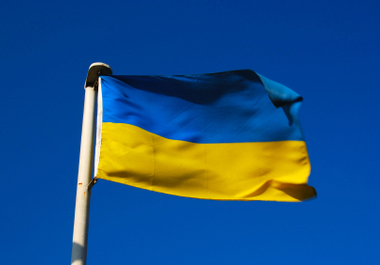
Jun 27, 2013 | News
The ICJ welcomes the decision of Ukraine’s High Qualification-Disciplinary Commission to reinstate Larisa Gerasko, a lawyer previously disbarred because of her involvement in seeking to register a local lawyers’ association.
Following a hearing on 21 June, which was attended by ICJ Commissioner Gulnora Ishankhanova, the High Qualification-Disciplinary Commission (HQDC) found that there were no valid grounds for disbarment.
The decision of the HQDC came in the context of a series of disciplinary proceedings against lawyers in Ukraine, which followed a law on “Advokatura and Lawyers’ Activities” adopted in 2012.
“Following the enactment of the new law, two parallel structures of self-governance of the legal profession were established, only one of which was registered,” said Gulnora Ishankhanova. “As a result of the conflict, disciplinary sanctions have been initiated against a number of lawyers on the grounds of organization and participation in ‘an alternative congress’ as well as other related and unrelated grounds.”
The ICJ commissioner visited Kiev on 20-22 June to examine the situation and meet with the main stakeholders including lawyers subjected to disciplinary action, relevant bodies of the Association of Lawyers and the HQDC and NGO representatives.
On 21 June, she observed disciplinary hearings against several lawyers including Larisa Gerasko, who had been disbarred on the grounds of submitting documents for state registration of a lawyers’ association of Zakarpatk Region, and Roman Martynovsky, a member of the HQDC, whose status as a lawyer was suspended for a period of six months for non-attendance of one meeting of this body.
The decision regarding lawyer Martynovsky was postponed until the following meeting of the HQDC.
“We are concerned that disciplinary action remains pending in a number of cases against lawyers involved in the creation of the unregistered lawyers’ association, the National Association of Lawyers,” Gulnora Ishankhanova added.
The ICJ recalls that, according to the UN Basic Principles on the Role of Lawyers, “all disciplinary proceedings shall be determined in accordance with the code of professional conduct and other recognized standards and ethics of the legal profession and in the light of these principles”.
Disciplinary action against a lawyer may only be initiated for violations of published standards of professional conduct, and any disciplinary sanctions must be proportionate to the offence committed.
Where a disciplinary system allows for practically any form of conduct to be construed by the responsible disciplinary body as grounds sufficient for disbarment, the sanction is likely to be arbitrary and to violate international human rights law.
The ICJ expresses its gratitude to the Ukrainian Helsinki Human Rights Union, the HQDC and others who facilitated or co-operated with the mission.
The ICJ will continue to monitor developments in the ongoing disciplinary action against lawyers in Ukraine and will in due course publish a more detailed report on the visit to Ukraine with recommendations.
Contact:
Róisín Pillay, Director, ICJ Europe Programme: +41 22 979 3830; e-mail: roisin.pillay(a)icj.org
Ukraine-ICJ welcomes decision to reinstate disbarred lawyer-press release-2013-rus (full text in pdf)
Photo by Serdar Yagci
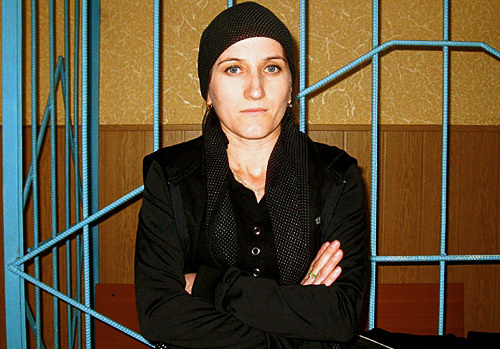
Jun 7, 2013 | News
The ICJ today expressed its grave concern at death threats received by lawyers Sapiyat Magomedova and Musa Suslanov.
The authors of the threats demanded that the lawyers cease their involvement in a case alleging the murder of five individuals.
The ICJ called on the authorities to take urgent protective measures to ensure the safety of lawyers who received these threats.
On 8 May, Sapiyat Magomedova and Musa Suslanov took on a case to represent relatives of a local parliamentarian, Magomed Gamzatov, his brothers Osman, Yusup and Gazidibir and their cousin Magomed Omarov. The men were killed by firearms in the city of Kizlyar, Dagestan, on 18 March.
According to relatives, the shootings resulted from a conflict of a personal nature. A criminal case was opened and several people arrested in relation to the killing.
However, the relatives of the victims have alleged that they have been subjected to continuous surveillance and pressure. Witnesses reportedly now fear to testify in the case.
From the start the lawyers began to be subject to intimidation, which included threats that their professional offices would be set on fire or blown up with the lawyers inside. Such threats were delivered through acquaintances of the lawyers.
On 19 and 20 may, after the two lawyers had announced a more proactive intervention in the case, including by inviting information from additional witnesses, the lawyers received text messages warning them that they should drop the case which was “their chance to stay alive”.
Another message demanded that they drop their involvement in the case and “not butt into something they should not do”.
The ICJ considers that there is an imminent risk to the lives and physical security of lawyers, especially taking into account the recent case of murder of a lawyer in Dagestan.
On 20 January 2012, a lawyer in Dagestan was shot to death with the alleged involvement of security forces. According to the information received by the ICJ, the case has still not been properly investigated and no one has been held accountable.
The ICJ recalls that under international law and standards, Russia has an obligation to protect the right to life of individuals where there is a real and immediate risk to the life of an individual from the criminal acts of a third party.
The UN Basic Principles on the Role of Lawyers provide that “where the security of lawyers is threatened as a result of discharging their functions, they shall be adequately safeguarded by the authorities”.
Effective measures to protect the lawyers should include security measures as necessary, such as police monitoring and guards. This issuance of death threats constitutes criminal conduct.
The ICJ called on the Russian authorities to promptly and thoroughly investigate these threats and to bring the perpetrators to justice in fair trials.
Lawyer-deaththreats-Russia-eng (download the statement in English)
Lawyer-deaththreats-Russia-rus (download the statement in Russian)
Contact:
Róisín Pillay, Director, ICJ Europe Programme, t +41 22 979 38 30; e-mail: roisin.pillay(a)icj.org
Temur Shakirov, Legal Adviser, ICJ Europe Programme, t +41 22 979 38 32: e-mail: temur.shakirov(a)icj.org
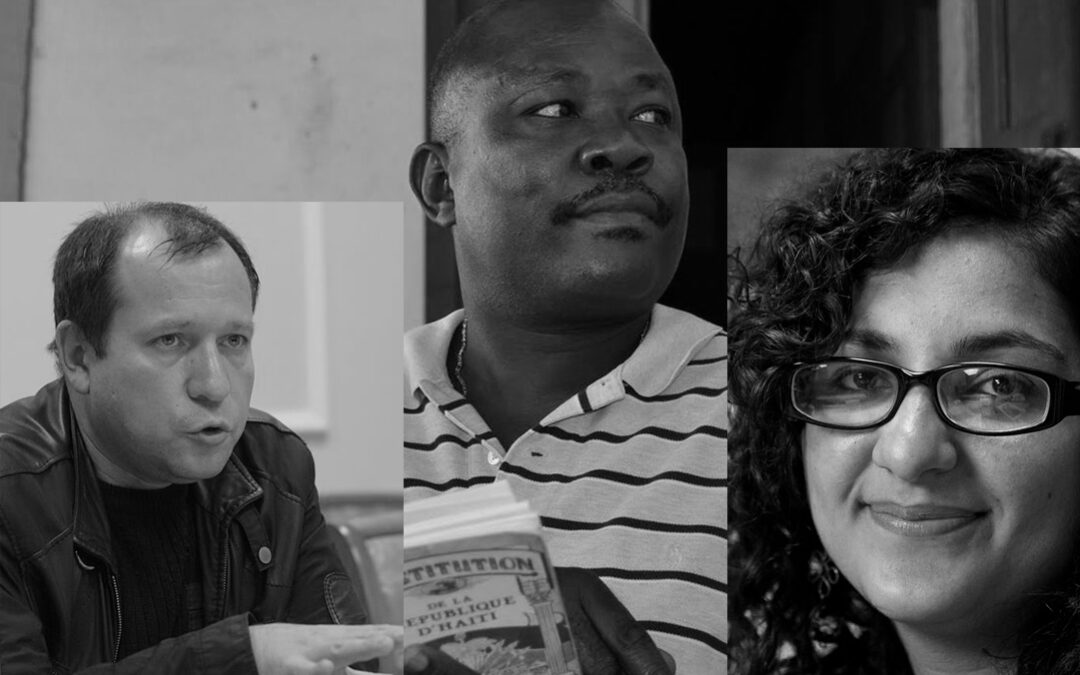
Apr 24, 2013 | Feature articles, News
The three final nominees for the Martin Ennals Award for Human Rights Defenders are Mona Seif (Egypt), Joint Mobile Group (Russia) and Mario Joseph (Haiti). The ICJ is one of the ten members of the jury.
The Martin Ennals Award is given to Human Rights Defenders who have shown deep commitment and face great personal risk. The aim of the award is to provide protection through international recognition.
Selected by ten leading human rights organizations (ICJ, Amnesty International, Human Rights Watch, Human Rights First, International Federation of Human Rights, Front Line Defenders, HURIDOCS, Diakonie – German Protestant Welfare, World Organization Against Torture and International Service for Human Rights) it is the world’s most important Human Rights Prize.
The 2013 Award will be presented on Oct. 8th at a ceremony hosted by the City of Geneva.
Mona Seif (Egypt) is the core founder of the” No To Military Trials for Civilians”, a grassroots initiative which is trying to stop military trials for civilians.
Since February 25, 2011, Mona has brought together activists, lawyers, victims’ families, local stakeholders and started a nationwide movement against military trials.
As part of the recent crackdown on the Freedom of Speech in Egypt she has been charged along with other Human Rights activists.
She noted that “International solidarity, and I mean people’s support not governments, empowers us to continue our battle and stop military trials for civilians“.
After the murder of several human rights activists working in Chechnya, Igor Kalyapin started the Joint Mobile Group. To reduce the risk they send investigators on short missions to Chechnya to document Human Rights abuses.
This information is then used to publicise these abuses to seek legal redress. Igor Kalyapin speaking of the effect of international publicity said “… when the international community is watching us it is more difficult for the authorities to take steps against us…”
Mario Joseph, Haiti’s most important Human Rights lawyer, has worked on some of the most important cases in Haiti, including the current case against the former dictator Jean-Claude “Baby Doc” Duvalier.
His family received asylum in the United States in 2004, while he chose to return to Haiti. He has faced threats and harassment for much of his 20 years as a lawyer although it has intensified in recent months.
He says: “this recognition from the Ennals Award shines a vital spotlight on my work, and on the work of everyone who is fighting for human rights in Haiti. That spotlight will make our work safer and more effective.”
MEA-Short Summary-2013 (read the pdf)
MEA-MONA SEIF bio-2013 (read the pdf)
MEA-JOINT MOBILE GROUP bio-2013 (read the pdf)
MEA-MARIO JOSEPH bio-2013 (read the pdf)
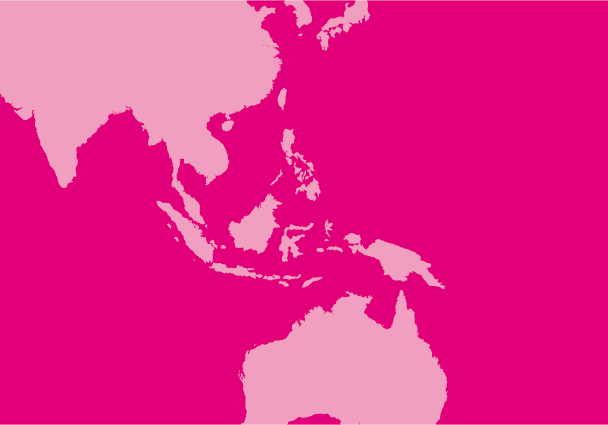
Apr 5, 2013 | News
The ICJ urged the Cambodian Bar Association to make it clear that its new Code of Ethics, launched today, does not restrict the freedom of lawyers to express their opinions.
Article 17 of the new Code of Ethics states (in an informal translation by the ICJ) that “All interventions made publicly or through public media by lawyers in their capacity as lawyers may be permitted only within the framework of strict compliance with the duties of the legal profession. Such interventions require diligence.”
This language replaces Article 15 of the 1995 Code, which demanded all lawyers in Cambodia to “inform” or “consult” the Bar President before making media statements.
“The language of the new Article 17 is an improvement over the old Code, but it is ambiguous and raises fears that lawyers will not be able to exercise their right to express their opinions freely,” said Emerlynne Gil, ICJ’s International Legal Advisor on Southeast Asia. “The Cambodian Bar Association must clarify that under Article 17, lawyers, like all others, can address important legal and policy issues publicly and openly.”
The ICJ asserted that the Bar Association must clearly and publicly state that Article 17 shall not be construed to mean that lawyers must seek permission prior to engaging in public activities in their professional capacity.
The ICJ also expressed concern over the previous statements made by the Bar Association implying that lawyers could be sanctioned for expressing certain views of the country’s laws or legal reforms. During a press conference on 15 March 2013, the Bar Association said that the purpose of Article 17 was to prevent lawyers from misinterpreting the law and thus “making society chaotic”.
“The best means of increasing public awareness of the laws and strengthening the rule of law is to encourage greater public discussion,” said Emerlynne Gil. “Disagreements about the meaning of laws are part of the nature of the legal process and should be encouraged publicly.”
The ICJ recognizes the grave difficulties of facing the legal system in Cambodia, where fewer than 1000 active lawyers must provide services for a population of more than 14 million people. “We share the Cambodian Bar Association’s concerns about the need to uphold the professional competence and integrity of its members,” said Emerlynne Gil. “However, this concern should be addressed through efforts to improve legal education expertise rather than limiting the right of lawyers to freedom of expression.”
For questions and clarifications, please contact Ms. Emerlynne Gil, International Legal Adviser for Southeast Asia, tel. no. +662 619 8477, fax no. +662 6198479 or emerlynne.gil@icj.org









